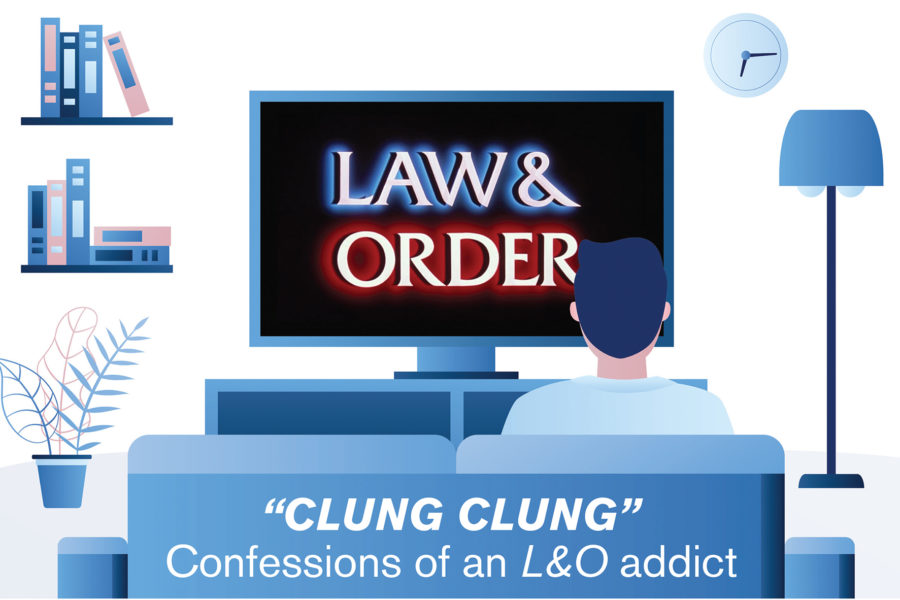
Here are some of the things you might have done, and probably did, to help get yourself through these stressful and sometimes-agonizing months of coronavirus quarantine: You might have plowed through a new show or two on Netflix. You might have held a few Zoom happy hours with your friends. OK, more than a few. You might have dived into a few new books. Or re-read some of your old favorites. Or discovered books exist. You might have gone for walks. Everyone went for walks.
Me, I found my own routine. A couple of nights each week, I looked at a screen and reconnected with several old friends. We never worked together, lived together, or hung out together. But I feel a closeness to them, a connection that developed despite our differences, the biggest one being that I’m real and they’re not.
I hadn’t seen Max, Donnie, Ben, and Paul in a long time, for instance, and it was good to reminisce about the old days. Claire and Jamie… I always had crushes on them, and they never knew, and they’ll never know. And Lennie—gosh, Lennie still looks the same after all these years. Dresses the same. Talks the same. Like he’s frozen in time forever. He still doesn’t drink. In fact, I’ve never so much as had a beer with anyone in the group over all the years I’ve known them, though one of them, Jack, was often sipping a tumbler of Scotch as we said goodnight.
You might know my friends, too, and feel the same way about them, especially if you’ve watched any prime-time television on NBC since 1990 or surfed through syndication-heavy cable channels. My friends are characters on Law & Order, and before you start wondering whether I’ve been passing my pandemic nights talking to my television or tweeting under the handle @DetMikeLogan4Ever, rest easy. I’m not crazy. What I am is a person whose entertainment preferences just happened to align with this strange and difficult moment in our culture and history.
Don’t get me wrong: I was a Law & Order junkie before the coronavirus infiltrated and upended everyone’s daily life. Back in the mid-1990s, when there was a such a thing as “appointment television,” when (unless you remembered to set your VCR) you had to watch your favorite show in its assigned time slot, my parents were Law & Order fans, and I discovered it through them. I didn’t make a point to tune in when it was on each week—I was in college at the time; there was coursework and socializing to be done—but every once in a while, I happened to catch it.
I became a full-blown L&O addict, though, once I entered the full-time workforce. By that time, the show had entered syndication, and as a sportswriter who worked at night, I had downtime during the late morning and early afternoon. Sally Jessy? Judge Judy? Maury? Sorry, guys. Not interested. A&E or TNT or USA would blast out a couple of Law & Order episodes each day, and once the narrator finished the famous monologue that began each one (“…the police who investigate crimes, and the district attorneys who prosecute the offenses. These are their stories.”), the hour or two flew by.
Why was I drawn to the show? Plenty of reasons. Its tagline through its first several seasons was RIPPED FROM THE HEADLINES, and as a crime drama set in New York in the early 1990s, Law & Order had an abundance of ready-made storylines at its writers’ disposal, both from the city and from the nation writ large. There was a Bernie Goetz-based episode (with Cynthia Nixon, later of Sex and the City fame, as the trigger-happy vigilante). There was a Tonya Harding/Nancy Kerrigan-based episode (with tennis pros, not figure skaters). There were two Ted Kaczynski-based episodes (the Unabomber and his 35,000-word manifesto provided plenty of source material).

The show’s recurring characters were three-dimensional, each with his or her own intrinsic traits and histories, and viewers learned just enough to know that none of them was a white knight. Det. Mike Logan was a hothead who could go too far in interrogating a suspect. Lennie Briscoe was an avuncular smart aleck and—as played by Jerry Orbach, with that slick and severe hair part and short-sleeved button shirts—the archetype of the New York City detective. You could practically smell the mingling scents of Old Spice and Vitalis on him. But he was also a philanderer and a recovering alcoholic. Lt. Anita Van Buren was tough and smart and carried a chip on her shoulder over those who doubted whether a black woman could lead a police precinct. District Attorney Adam Schiff was wise and savvy…and quick to take the path of least resistance on a hard case. (“Make the deal.”) Assistant DA Jack McCoy tended to go rogue, and his wild-card approach to prosecuting criminals was intensified, I always thought, by Sam Waterston’s tendency to delivers his lines as if he’d been throwing down belts of brown liquor, just like Jack often did at the end of a rough workday, between takes.
Plus, the jail-cell-door-shutting sound effect was cool. CLUNG CLUNG.
But Law & Order, at its core, wasn’t a character-driven show. It was great because it was a plot-driven show, and at its peak, those plots were at once formulaic and surprising, realistic and gripping. (Note: Though Law & Order ran on NBC for 20 years, from 1990-2010, I define its “peak” as 1990-1999. Once New York’s and the country’s violent-crime rate started to plummet, once there were fewer stories to rip from the headlines, the series became more contrived and lost its mojo. And don’t give me those watered-down spinoffs: SVU and Criminal Intent. I want the original, and I want it neat.)
More to the point—and here’s why I’ve appreciated it even more over these last few months—it was a plot-driven show that resolved itself, that tied up its loose ends, within an hour. You watched an episode. You enjoyed it. And you didn’t necessarily have to remember every detail of it, or of the episode that had aired before it, to enjoy the next one. Half the fun of watching Law & Order over time, in fact, was noticing certain actors and actresses who got consistent work from reappearing on the show as different one-off characters. Hey, the guy who played the ex-cop who protected his son from a murder conviction also played the judge in the pit bull-attack episode!
Look, I think Breaking Bad is the best TV show I’ve ever seen. I marveled at The Wire through its first four seasons (until David Simon started airing his personal and professional grudges in the fifth season). And I can appreciate that, in our age of streaming and binge-watching, a show can tease out its primary narrative thread over an entire season or several seasons and people are happy to follow it. Except I wasn’t interested in making so significant a mental and emotional investment in my escapism. I’ve had enough on my mind lately: home-schooling my kids, keeping my parents and my wife’s parents virus-free, worrying about our health, worrying about our jobs and the economy, wondering when it will be appropriate to be within six feet of our friends and loved ones again. We all have had enough on our minds lately.
And so, as the quarantine went on and on, I grew accustomed to settling into my favorite chair, flipping on WETV, and letting Dick Wolf take me to a familiar, reassuring place: a street corner or vacant lot in Manhattan, where a dead body lies and the 27th Precinct has just been called. You have your virtual getaways. I have mine. CLUNG CLUNG.

